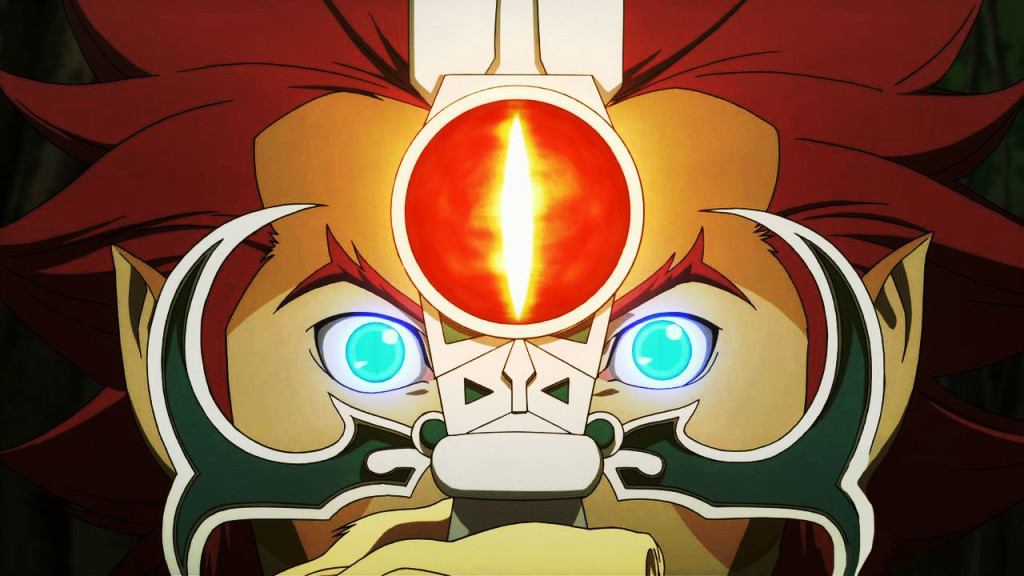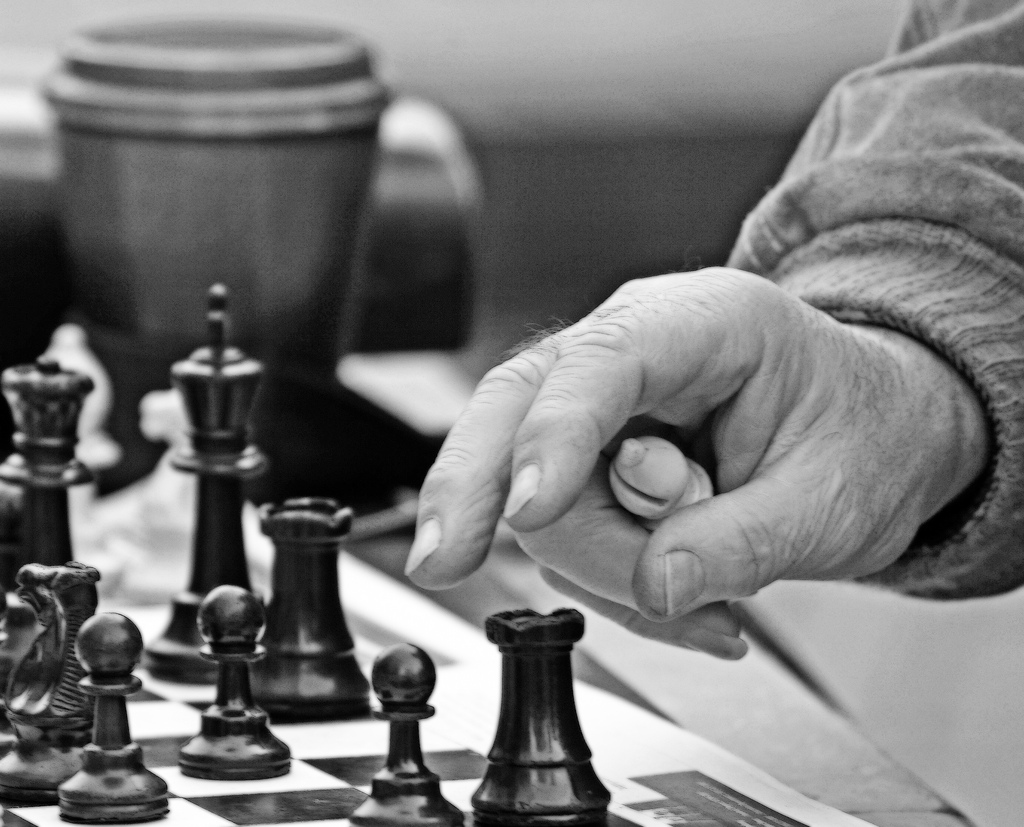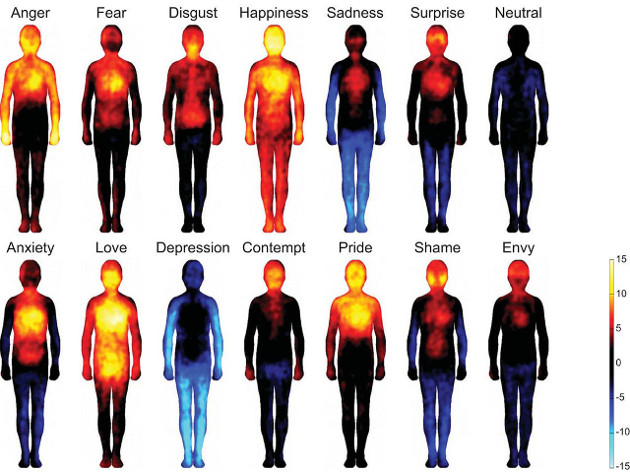A note to loyal readers: this is a remastered version of this post. New stuff has been added, so it’s worth re-reading. When Captain Ginyu stole Goku’s body, he couldn’t use it to its full potential for the same reason Luke couldn’t get the X-Wing out of the swamp on Dagobah. As much as I [...]

A note to loyal readers: this is a remastered version of this post. New stuff has been added, so it’s worth re-reading.
When Captain Ginyu stole Goku’s body, he couldn’t use it to its full potential for the same reason Luke couldn’t get the X-Wing out of the swamp on Dagobah.
As much as I don’t want to keep pounding you with romantic philosophical essays (eight out of the past nine have been just that, oops), this essay is essential before moving into The Skinny-Fat Saga. Harness the power, and you’ll change the game.
The non-existant math of the body
I could just schlep a program in front of you. The exercises would be listed. So would the sets and reps. This is probably all you wanted from the get-go anyway. But unless your mind is in the right place, that piece of paper won’t give you the results you want.
We live in a world in which fitness (or should I say the body as a whole) has become an emotionless bucket. Walk mindlessly on a treadmill. See how many calories you burn. Count the calories you eat. Count sets. Count reps. Count time in between reps. Count time in between sets. Numbers. Numbers. More numbers.
But what happened to feelings? What happened to emotion?
It’s there, trust me. But no one talks about it.
That’s why most people fail.
Chess players and burning 7000 calories

My go-to for explaining mind-body connectedness is an often cited event by Robert Sapolsky: some grandmasters burning 7000 calories as they play a game of chess. It seems impossible, right? How can you burn 7000 calories sitting in a chair when you can trek on a treadmill for an hour and only burn 300 calories?
For the same reason that:
- People that get incisions without actual surgery see the same recovery as those that actually get the surgery
- People that get useless dye put over a wart and are told that the wart would be gone when the dye is gone actually have their warts eliminated
- People see improved breathing in asthmatics when they thought they were breathing into a bronchodilator (but actually weren’t)
And the examples can go on. (The above were taken from The Placebo Prescription.) The chess players aren’t burning calories because of immense muscle movement, but because of immense physiological movement. To them, every move they make is on par with teetering past a sleeping saber-toothed tiger. Their sympathetic nervous system is going like gangbusters for hours. Below is a passage from Why Zebras Don’t Get Ulcers.
The definitive study on chess players was carried out by the physiologist Leroy DuBeck and his graduate student Charlotte Leedy. They wired up chess players in order to measure their breathing rates, blood pressure, muscle contractions, and so on, and monitored the players before, during, and after major tournaments. They found tripling of breathing rates, muscle contractions, systolic blood pressures that soared to over 200—exactly the sort of thing seen in athletes during physical competition.
See the original report, Leedy’s thesis, “The effects of tournament chess playing on selected physiological responses in players of varying aspirations and abilities” (Temple University, 1975) or their brief report (Leedy, C, and DuBeck, L., “Physiological changes during tournament chess,” Chess Life and Review [1971]: 708).
In a telephone conversation, DuBeck also tells the story of the international match in the early 1970s between grand masters Bent Larson and Bobby Fischer, in which the former had to be given antihypertensive medication in the middle of his losing match; his blood pressure remained elevated for days afterward.
The Kasparov-Karpov report is from the New York Times, 20 December 1990. And for that special chess fan out there who just can’t get enough of this subject, may I suggest as the perfect gift a copy of Glezerov, V., and Sobol, E., “Hygienic evaluation of the changes in work capacity of young chess players during training,” Gigiena i Sanitariia 24 (1987), in the original Russian.

It seems like a fantasy, but recent self reported body mapping research backs the mind and body connection to a degree. Thoughts about emotions change the self perception of heat distribution throughout the body.
The effect of stories and results
From the moment you step into this world, you’re told stories. You see some things as good, other things as bad. Some necessary, some useless.
Stories are necessary, don’t get me wrong, but you should know of the effect they have on your body. It’s possible to talk yourself out of something that would otherwise work well.
No matter what you decide to do, you have to fully believe that it’s going to work. If you have any reservations about it, then you should rethink your involvement. Think trust.
Trust that whatever you’re doing will work. Trust that your guts and innards are taking care of business.
Mind-body and mind-muscle isn’t enough
Many people associate this mind body connection with the mind-muscle connection, which only one sliver of the mind-body pie. As I said before, envision your muscles with a Pac-Man maw gobbling up precious nutrients for growth if you want to build muscle. Think about fiery devils with jetpacks crusading around your body with blowtorches, incinerating your fat cells.
This isn’t to say that thoughts alone will save you. But it is saying that your thoughts should be on par with whatever you’re trying to accomplish. You have to actually care.
You and I could play chess and have no physiological response. But if you’ve been training every day for ten years and are in front of an audience with some cash riding on the game?
It’s just different.
The outside is the same. The sight is the same. You’re still moving the wooden pieces. Still playing the overt game.
But if what you’re doing means something?
That’s the difference. That’s the sight beyond sight.
Do you drink tea? Or do you drink tea?
I once heard of a story of a man that lived in the crevice of a mountain. This man had remarkable healing powers. For years, a journeyman sought this nomad. The journeyman wanted to know the secrets of healing.
The journeyman waded through the forests. He slept on the soil. He searched for months.
One day the journeyman awoke with an awful illness. He had a choice. Lay there and suffer, or give one last attempt at seeking the nomad.
By fate, he found the nomad. After telling the nomad how long he’d been searching for him and the illness he acquired along the way, the nomad agreed to share his secrets. They walked and walked. Walked all night back to the nomads home — a tiny crevice in the foothills of a giant mountain.
There wasn’t much in the crevice. Tree stumps were arranged in a circle around a fire pit. To the right, the nomad’s bed.
“Sit,” the nomad said.
The journeyman sat on the stump. The fire loaned the little light in the room . . . enough light for the journeyman to see the nomad pulling leaves from a tiny plant growing at the foot of the bed.
“What’s that?” the journeyman said.
The nomad turned his head slowly and smirked.
“The secret.”
The nomad put the leaves into a pot and boiled it over the flame for a half hour. All the while, the journeyman couldn’t help but wonder if this nomad’s secret was nothing more than a cup of tea.
“Drink,” the nomad said as he handed a journeyman the cup of tea. By this time, the journeyman was in agony. The illness was spreading, but he was happy to have the cure in his hands. He blew the tea to cool it down, noting the ripples flowing away from the body. He couldn’t help but think that this looked like every other cup of tea he’s ever had.
Five minutes passed. The journeyman’s tea was gone. Gulped down. The nomad sat with his legs crossed. Tea just about full. Smelling the steam still ascending from his cup.
“Sleep,” said the nomad, nothing that the journeyman was finished with his tea and visually searching for a sign of the healing powers at work.
The journey man cuddled up with himself, but couldn’t help but notice the nomad drinking tea over the next two hours—the same tea that it took the journeyman five minutes to drink.
This continued for two more days. The journeyman pounded the tea. The nomad sat quietly.
On the third day, the journeyman got frustrated. Even though his illness wasn’t getting worse, it wasn’t get better. He approached the nomad with fury, asking him why his tea wasn’t curing him.
The nomad smirked.
“When you drink tea, you drink tea. When I drink tea, I drink tea.”
The answer is in the italics
There’s a fundamental difference between training and training. Between lifting weights and lifting weights. Eating and eating.
Between sight, and sight beyond sight.
The way you train changes as you gain experience. At first, you’re just passing time. You don’t really know how to use your muscles for concentrated effort. You’re tentative. But, over time, you learn how to train.
Sometimes it’s less about the motion and more about the meaning. What does it mean to you. How does it effect your personally? Emotionally? Or are you doing it just to look good for some girl that doesn’t even know you exist? What does your six pack really mean to you?
If your program could talk, I bet a lot of the times it would say, “I’m sorry. It’s not me, it’s you.”
I know my own ghosts of programs past would tell me this. You can do the same program at two different points and get two different set of results. That’s why grand master chess players can burn 7000 calories playing a game of chess, and why we can move the same pieces and go through the same hurrah without having any significant physiological response.
Fix your mind first
Before we dive into The Skinny-Fat Saga, you have to be mentally prepared. All battles are first won with the mind. While we will continue these theme throughout each Saga, it’s important enough to know up front. The first essay of the Skinny-Fat Saga comes tomorrow, and you have to have your mind in the right place.
There’s everything you see. There’s taking everything at face value.
There’s emotions and feelings. There’s everything you don’t see.
There’s sight.
And then there’s sight beyond sight.
Which do you have?
+++++
Photo Credit: chess
